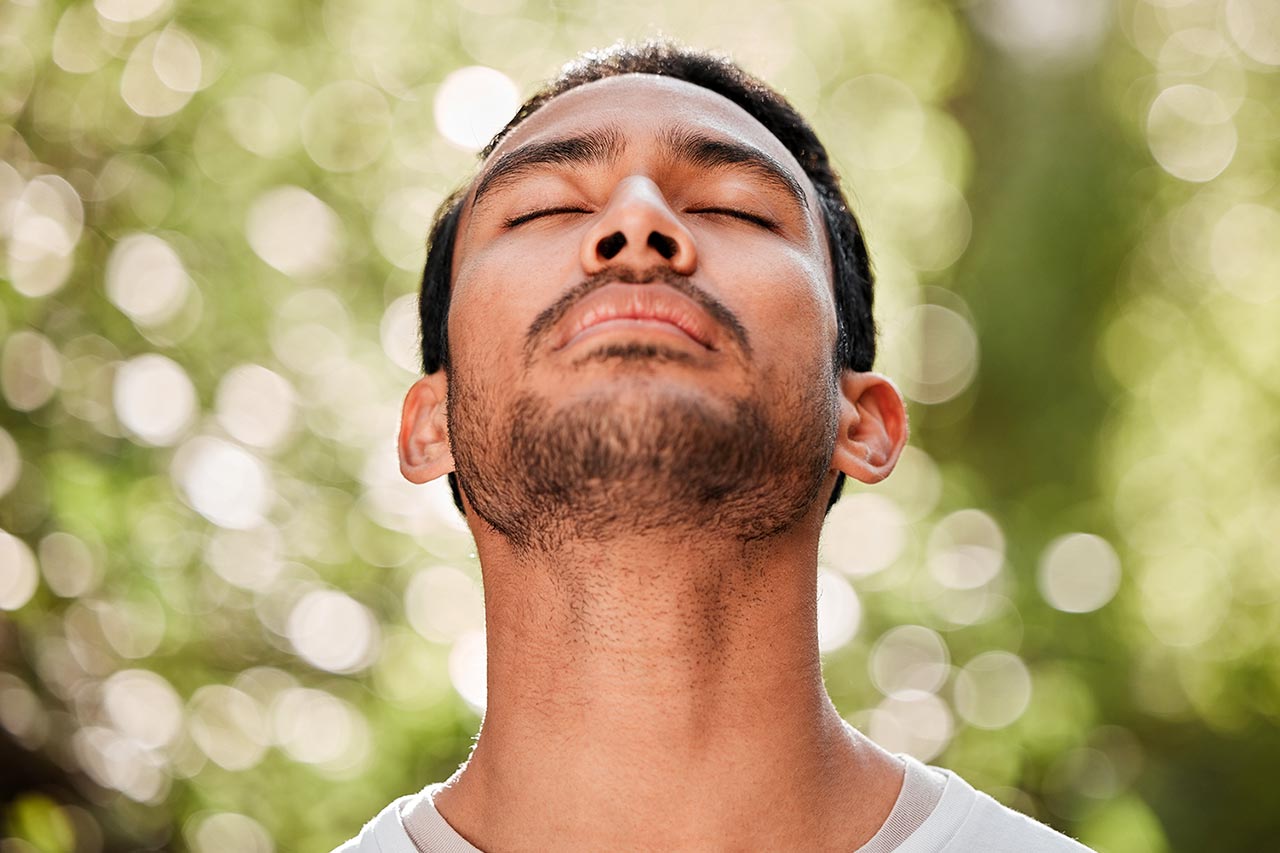In our high-speed world, we’re starting to realize how important it is to take care of our mental health. And guess what? There are plenty of ways to help our minds stay fit and happy, which we’ll unravel in this blog post. We’ll dive deep into the realm of mindfulness, breathing techniques, psychedelics, prayer, community-based activities such as singing and body movement, and their effects on our brain. We’ll also shed light on the impact these practices have on the default mode network (DMN) – think of this as your brain’s “cruise control” setting, kicking in when you’re daydreaming, mind-wandering, or weaving stories in your head.
Rewiring the Default Mode Network (DMN):
Let’s start by expanding on one of the main areas of our brains that we can reprogram for healthier minds. The default mode network or the DMN for short, is a network in our brain linked to self-thought, daydreaming, and overthinking, it plays a crucial role in our mental health. Various practices and therapies can tweak the DMN, improving our overall well-being. Mindfulness, for instance, can help us manage our DMN, reducing excessive activation and helping us get less caught up in negative thinking.
The Power of Mindfulness
Practicing mindfulness not only helps develop healthier narratives and brain patterns, It also helps us stay in the moment and accept things without judgment.
Just like how regular exercise helps our body, mindfulness helps our brain. Mindfulness, which is often linked with meditation, is a tool to keep our minds fit and flexible. Research tells us that doing mindfulness exercises regularly can actually change the structure of our brain. Parts of the brain that deal with focus, emotions, and understanding others can grow. Our prefrontal cortex, which helps with complex thinking, can get thicker and better connected, leading to better self-control and emotional health.
Breathwork: The natural calm pill


Breathing increases feelings of calmness and reduces stress.
For hundreds of years, people have used controlled breathing exercises to improve mental health. These exercises, like deep belly breathing or alternate nostril breathing, can stimulate the body’s relaxation response and help us feel calmer, reducing anxiety and improving mental resilience. Over time, these changes in our breathing can lead to physical changes in our brain, helping us manage our emotions and stress better.
Psychedelics: Expanding Consciousness and Healing
Psychedelics have been in the spotlight lately for their potential to treat mental health conditions like depression, anxiety, and PTSD. Substances like psilocybin (found in certain mushrooms) and MDMA create temporary changes in brain activity, fostering self-reflection, emotional processing, and a sense of connection. Brain scans show increased flexibility, altered DMN activity, and stronger connections between different parts of the brain, leading to lasting improvements in mental health.
Prayer: Your personal peace protocol
Engaging in prayer, found in many spiritual and religious traditions, can have positive effects on our mental health. It can activate the brain’s ‘feel-good’ areas, fostering empathy, social connection, and a sense of peace. Regular prayer can lead to an increase in certain brain areas, improving emotional regulation, reducing stress, and promoting better coping skills.
Community Practices: Singing and Moving together
Being part of community activities like singing or body movement can do wonders for our mental health. Group singing releases a cocktail of happy chemicals in our brain, leading to feelings of joy, connection, and overall well-being. We can think of it as voice medicine, which is available to all of us. Brain scans show increased activity in the areas linked to social bonding, emotional expression, and stress reduction. Similarly, body movement practices like dance and yoga can improve self-awareness, emotional regulation, and help us feel more in tune with our bodies and move tensions stuck in our tissues.
Your brain: Built for change
Our brain’s remarkable ability to adapt, known as neuroplasticity, allows it to change and evolve throughout life. The practices we’ve discussed today can stimulate this change, promoting the growth of new brain cells, strengthening connections, and improving the functioning of various brain areas involved in emotional regulation, stress response, and social connection.
Taking care of our mental health involves a variety of practices, from mindfulness and breathwork to prayer and group activities. Each offers unique benefits for our brain and opens up possibilities for change. By embracing these practices, we can tap into our brain’s amazing ability to adapt, ultimately enhancing our mental health. So, let’s dive into this journey together and harness the power within us to cultivate a healthier mind and a happier life.
Note: The information in this post is for educational purposes only. It’s not a substitute for professional medical or mental health advice.
Remember, if you or someone you know is struggling with mental health issues, it’s essential to reach out to qualified professionals for personalized advice and support.
Resources
Mindfulness and Brain Changes
- Davidson, R. J., Kabat‐Zinn, J., Schumacher, J., Rosenkranz, M., Muller, D., Santorelli, S. F., Urbanowski, F., Harrington, A., Bonus, K., & Sheridan, J. F. (2003). Alterations in Brain and Immune Function Produced by Mindfulness Meditation. Psychosomatic Medicine, 65(4), 564–570. https://www.ncbi.nlm.nih.gov/pmc/articles/PMC2944261/
- Hölzel, B. K., Carmody, J., Vangel, M., Congleton, C., Yerramsetti, S. M., Gard, T., & Lazar, S. W. (2011). Mindfulness Practice Leads to Increases in Regional Brain Gray Matter Density. Psychiatry Research: Neuroimaging, 191(1), 36–43. https://www.ncbi.nlm.nih.gov/pmc/articles/PMC3004979/
- Tang, Y. Y., Hölzel, B. K., & Posner, M. I. (2015). The Neuroscience of Mindfulness Meditation. Nature Reviews. Neuroscience, 16(4), 213–225. https://www.ncbi.nlm.nih.gov/pmc/articles/PMC4630936/
- Fox, K. C., Nijeboer, S., Dixon, M. L., Floman, J. L., Ellamil, M., Rumak, S. P., Sedlmeier, P., & Christoff, K. (2014). Is Meditation Associated with Altered Brain Structure? A Systematic Review and Meta-Analysis of Morphometric Neuroimaging in Meditation Practitioners. Neuroscience & Biobehavioral Reviews, 43, 48–73. https://www.ncbi.nlm.nih.gov/pmc/articles/PMC4142584/
Breathwork and Mental Health
- Jerath, R., Edry, J. W., Barnes, V. A., & Jerath, V. (2006). Physiology of long pranayamic breathing: Neural respiratory elements may provide a mechanism that explains how slow deep breathing shifts the autonomic nervous system. Medical Hypotheses, 67(3), 566–571. https://www.ncbi.nlm.nih.gov/pmc/articles/PMC5575449/
- Zaccaro, A., Piarulli, A., Laurino, M., Garbella, E., Menicucci, D., Neri, B., & Gemignani, A. (2018). How Breath-Control Can Change Your Life: A Systematic Review on Psycho-Physiological Correlates of Slow Breathing. Frontiers in Human Neuroscience, 12, 353. https://www.frontiersin.org/articles/10.3389/fnhum.2018.00353/full
- Seppälä, E. M., Nitschke, J. B., Tudorascu, D. L., Hayes, A., Goldstein, M. R., Nguyen, D. T., Perlman, D., & Davidson, R. J. (2014). Breathing-Based Meditation Decreases Posttraumatic Stress Disorder Symptoms in U.S. Military Veterans: A Randomized Controlled Longitudinal Study. Journal of Traumatic Stress, 27(4), 397–405. https://pubmed.ncbi.nlm.nih.gov/25160888/
Psychedelics and Mental Health
- Carhart-Harris, R. L., Bolstridge, M., Rucker, J., Day, C. M., Erritzoe, D., Kaelen, M., Bloomfield, M., Rickard, J. A., Forbes, B., Feilding, A., Taylor, D., Pilling, S., Curran, V. H., & Nutt, D. J. (2016). Psilocybin with Psychological Support for Treatment-Resistant Depression: An Open-Label Feasibility Study. The Lancet Psychiatry, 3(7), 619–627. https://www.ncbi.nlm.nih.gov/pmc/articles/PMC5367557/
- Griffiths, R. R., Johnson, M. W., Carducci, M. A., Umbricht, A., Richards, W. A., Richards, B. D., Cosimano, M. P., & Klinedinst, M. A. (2016). Psilocybin Produces Substantial and Sustained Decreases in Depression and Anxiety in Patients with Life-Threatening Cancer: A Randomized Double-Blind Trial. Journal of Psychopharmacology, 30(12), 1181–1197. https://pubmed.ncbi.nlm.nih.gov/27908582/
- Mithoefer, M. C., Mithoefer, A. T., Feduccia, A. A., Jerome, L., Wagner, M., Wymer, J., Holland, J., Hamilton, S., Yazar-Klosinski, B., Emerson, A., & Doblin, R. (2018). 3,4-methylenedioxymethamphetamine (MDMA)-Assisted Psychotherapy for Post-Traumatic Stress Disorder in Military Veterans, Firefighters, and Police Officers: A Randomised, Double-Blind, Dose-Response, Phase 2 Clinical Trial. The Lancet Psychiatry, 5(6), 486–497. https://pubmed.ncbi.nlm.nih.gov/29778776/
Prayer, Singing, and Somatic Movement
- Schjødt, U., Stødkilde-Jørgensen, H., Geertz, A. W., & Roepstorff, A. (2008). Highly religious participants recruit areas of social cognition in personal prayer. Social Cognitive and Affective Neuroscience, 4(2), 199-207. https://academic.oup.com/scan/article/4/2/199/1664500
- Koelsch, S. (2014). Brain correlates of music-evoked emotions. Nature Reviews. Neuroscience, 15(3), 170–180. https://www.ncbi.nlm.nih.gov/pmc/articles/PMC3924897/
- Fancourt, D., Aufegger, L., & Williamon, A. (2015). Low-stress and high-stress singing have contrasting effects on glucocorticoid response. Frontiers in Psychology, 6, 1242. https://www.ncbi.nlm.nih.gov/pmc/articles/PMC4508391/
Unite for Healing: Your Contribution, Puerto Rico's Transformation.
Embark on a journey of transformation with the Pravan Foundation. Your generous donation becomes a beacon of hope, illuminating the path to mental wellness for countless individuals in Puerto Rico. Together, let’s break down barriers, ushering in a new era of mental health and well-being.
Make a difference today – your contribution is the cornerstone of change, healing, and renewed hope across the island. Join us, and be the change that Puerto Rico needs. Unite for healing, unite for transformation, unite for a brighter tomorrow.
